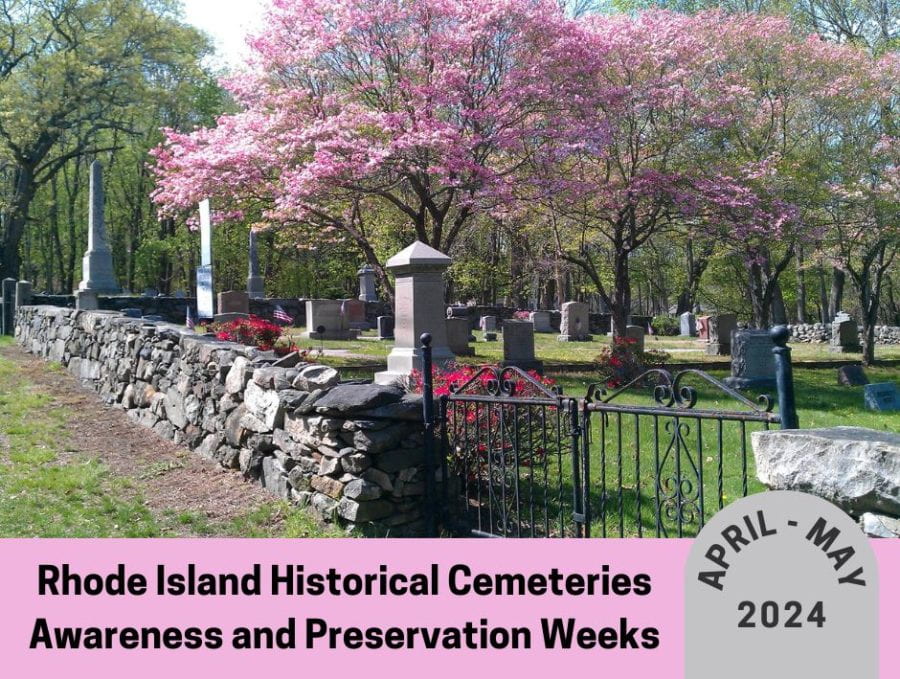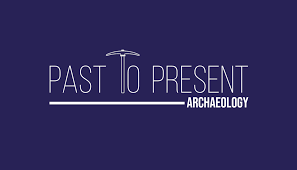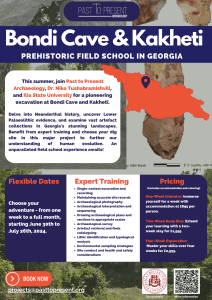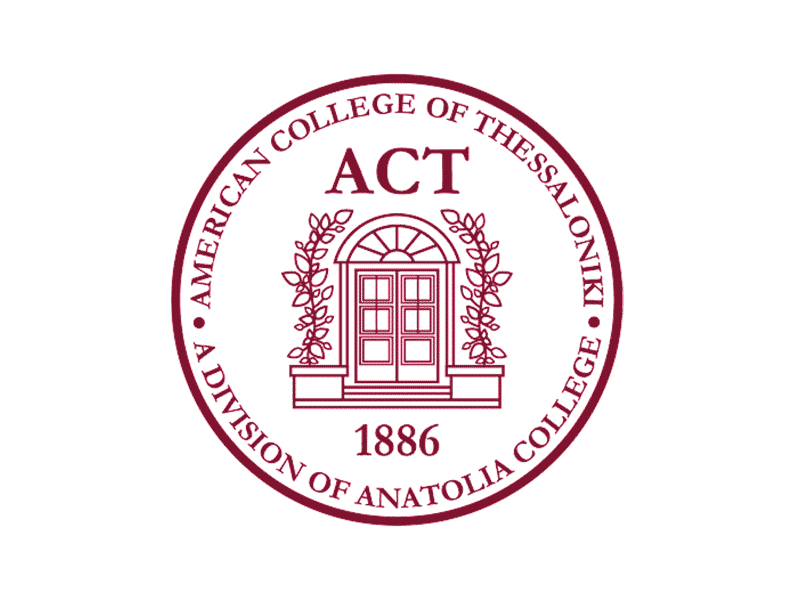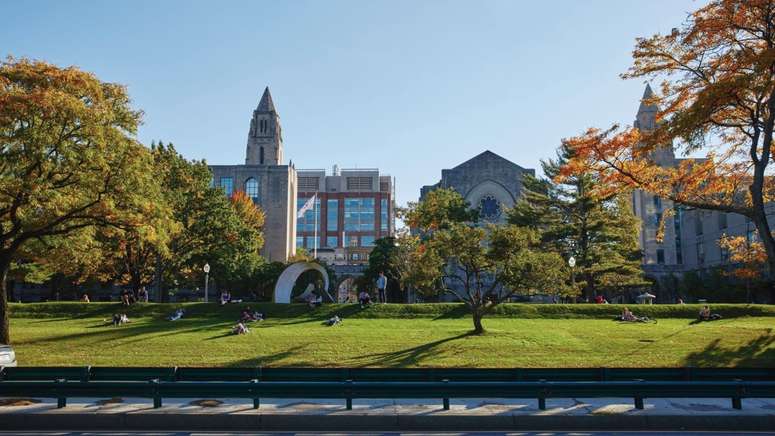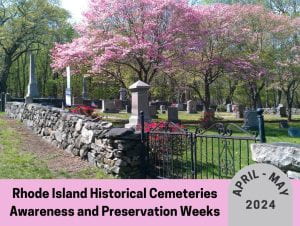
Rhode Island Historical Cemetery Awareness and Preservation Weeks is underway! The weeks kick off in April and continues into May with tours, clean-ups, gravestone conservation demonstrations, and other programs in and about historic cemeteries throughout the state. All programs are free, and most are outdoors. Rhode Island Cemetery Weeks is organized by the Rhode Island Advisory Commission on Historical Cemeteries and Rhode Island Historical Preservation & Heritage Commission in collaboration with many individual and organizational partners.
Here is the schedule for April – check out all the amazing events occuring this month!
- 4/1 Clean-up | Three burial lots, Cumberland
- 4/2 Clean-up | Two burial lots, Cumberland
- 4/3 Clean-up | Two burial lots, Cumberland
- 4/3 Birds & Burials Tour | Norman Bird Sanctuary, Middletown
- 4/4 Clean-up | Three burial lots, Cumberland
- 4/4 Colonial Newport Burial Sites & Stones Presentation | Edward King House, Newport
- 4/5 Clean-up | Four burial lots, Cumberland
- 4/5 Clean-up | Three burial lots, Cumberland
- 4/6 Clean-up | Riverside Cemetery, Burrillville
- 4/6 Geology tour | Woodland Cemetery, Coventry (rain date 4/13)
- 4/6 Clean-up | Three burial lots, Cumberland
- 4/6 Clean-up/Flagging | Isaac Collins Lot, Richmond
- 4/6 Pokanoket Royal Burial Ground Tour | Burr’s Hill Park, Warren (rain date 4/7)
- 4/7 Clean-up | Five+ burial lots, Cumberland
- 4/8 The Poorhouse Graves of Route 37 Panel Discussion| Central Cranston Public Library
- 4/13 Clean-up | Hopkins/Potter/Marsh Cemetery, Burrillville
- 4/13 Clean-up, stone cleaning, self-guided tours | Newman Cemetery, East Providence
- 4/13 Clean-up | Jonathan Foster Ground, Westerly
- 4/17 Clean-up, stone cleaning, self-guided tours | Newman Cemetery, East Providence
- 4/20 Clean-up | Old Baptist Church Yard, Exeter
- 4/20 Clean-up | Governor King/Borden Lot, Johnston
- 4/20 Arnold Burying Ground and Alice Brayton Tour | Arnold Burying Ground, Newport
- 4/20 Tour | Hotchkiss Cemetery, North Smithfield
- 4/20 Clean-up | Tillinghast Cemetery, Providence
- 4/21 Hike/Clean-up | John Gardner Lot, Exeter
- 4/23 Birds & Burials Tour | Norman Bird Sanctuary, Middletown
- 4/24 Living with the Dead in Rhode Island Talk | Central Cranston Public Library
- 4/27 Flagging | (meet at) Exeter Public Library
- 4/27 Tour | Hotchkiss Cemetery, North Smithfield
- 4/27 Tour | Common Burying Ground, Newport
- 4/27 Clean-up/data verification | North Burial Ground, Providence
- 4/27 Clean-up | Nicholas Thomas Lot, Scituate
- 4/27 Clean-up | Mowry Lot at Bryant University, Smithfield
- 4/27 Clean-up | Brayton Cemetery, Warwick
- 4/27 Clean-up | Babcock Lot, Westerly
- 4/28 Walking Tour | Moshassuck Cemetery, Central Falls
- 4/28 “Zinkies” walking Tour | North Burial Ground
- 4/28 Walking Tour | River Bend Cemetery, Westerly
- 4/28 Walking Tour | Precious Blood Cemetery, Woonsocket
There will also be ongoing exhibits:
- 4/2 – 5/31 Newport Historic Cemeteries Exhibit | Newport Public Library, Newport
- 4/10 – 5/18 Middletown Historic Cemeteries Exhibit | Middletown Public Library, Middletown
For more information on the event schedule for this year’s Rhode Island Historical Cemeteries Weeks, please visit the calendar!

